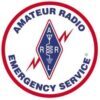PRO-103
Amateur Radio Operators as Professionals
Part III
Volunteering Where You Are Not Known
In some cases, an emergency occurs in a neighboring area where you are not a member of the responding communication group. For whatever reason, you might feel obligated to offer your services. If at all feasible, it is best to make your offer before making any significant preparations, or leaving home. It is possible that your offer might be welcomed, but it is equally possible that it will be refused. There are good reasons for this, particularly where the served agency has specific requirements, such as specialized training, official IDs, and time consuming background checks. Most emergency communications managers prefer to work only with operators whose abilities and limitations they know. They may also have more volunteers than they need, or may feel that your skills or equipment are not suited to their mission. If you are turned away, please accept the situation gracefully.
On the other hand, if your offer of assistance is accepted, the situation you find may vary quite a bit. In a well-organized effort, there will be someone to help orient you to the response effort, provide any required information, and answer your questions. Your assignment will be clear, a relief person will be sent along at the end of a predefined shift and you will know of any arrangements for food, sanitation, and sleep. If the effort is not well organized, little, if any, of the above scenario could be true. You might be given an assignment but with little additional information or support. In this case, you will need to improvise and fend for yourself and you should be prepared to do so. This is one good reason for making your offer of assistance in advance. Learn as much as you can about the response before preparing to leave home. In any event, the best time to offer your services is well before any emergency occurs. This will allow you to obtain the proper training and credentials, and to become known to the group’s managers. When the time comes to serve, you will be ready for your job, and a job will be ready for you.
Worker’s Compensation Coverage and Legal Protections
In some states, Worker’s Compensation insurance coverage can be extended to volunteers working on behalf of a government or non-profit agency. However Worker’s Compensation law is a rather complex matter regulated by individual state’s laws. In many cases, it may not be possible for volunteers who are not also paid employees of a served agency to be covered by Worker’s Compensation. Ares/Races leadership should investigate their state’s laws on this subject rather than assume that the agency’s Worker’s Compensation coverage will automatically apply.
Volunteers
providing services to government agencies or Section 501(c)(3) tax-exempt private organizations are provided immunity from liability by Federal law through the Volunteer Protection Act of 1997, 42 U.S.C. Section 14501. This generally limits liability if the volunteer was acting at the time within the scope of official duties under a volunteer program. There are exceptions: the law does not cover volunteers who cause harm while operating motor vehicles, or if the volunteer is grossly negligent, or engages in criminal acts. The statute, however, provides broad liability protection for Amateurs in most contexts and especially where Amateurs volunteer under ARES to provide emergency communications to served agencies.
Review:
- The relationship between Amateur Radio operators and a served agency is both critical and complicated.
- Ares/Races volunteers should maintain a professional attitude at all times and remember that their relationship to the served agency is much like that of an employee – without the paycheck.
- Agency relationships will vary with the agency, region, and the needs and style of local management.
- Avoid giving any information to the press until you understand both the served agencies and your own group’s policies on speaking to the press. Most groups will want all information to come from a central official source, such as a “public information officer.”
- When volunteering where you are not known, do not be surprised if your offer is refused.
That concludes tonight’s training. Are there any questions, comments or suggested additions to this material?
Thanks, this is (callsign) clear to net control.
Send corrections, modifications, updates or suggestions to k5prs@aol.com
